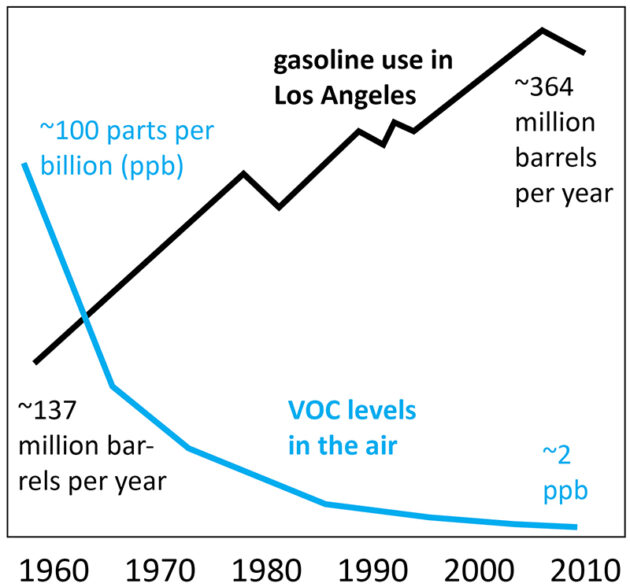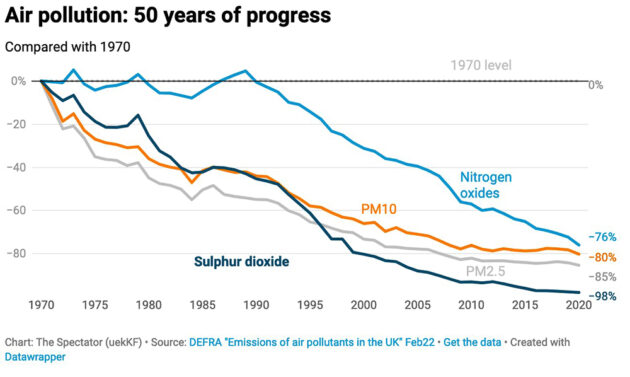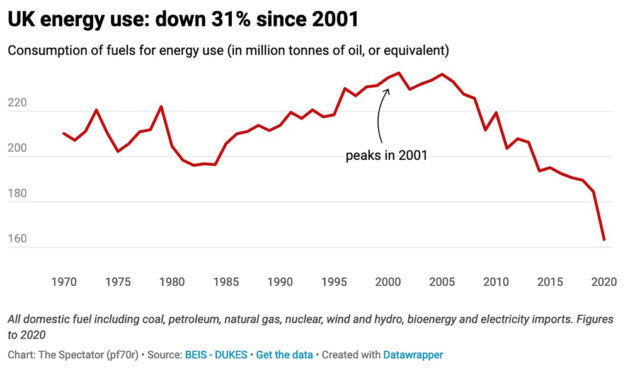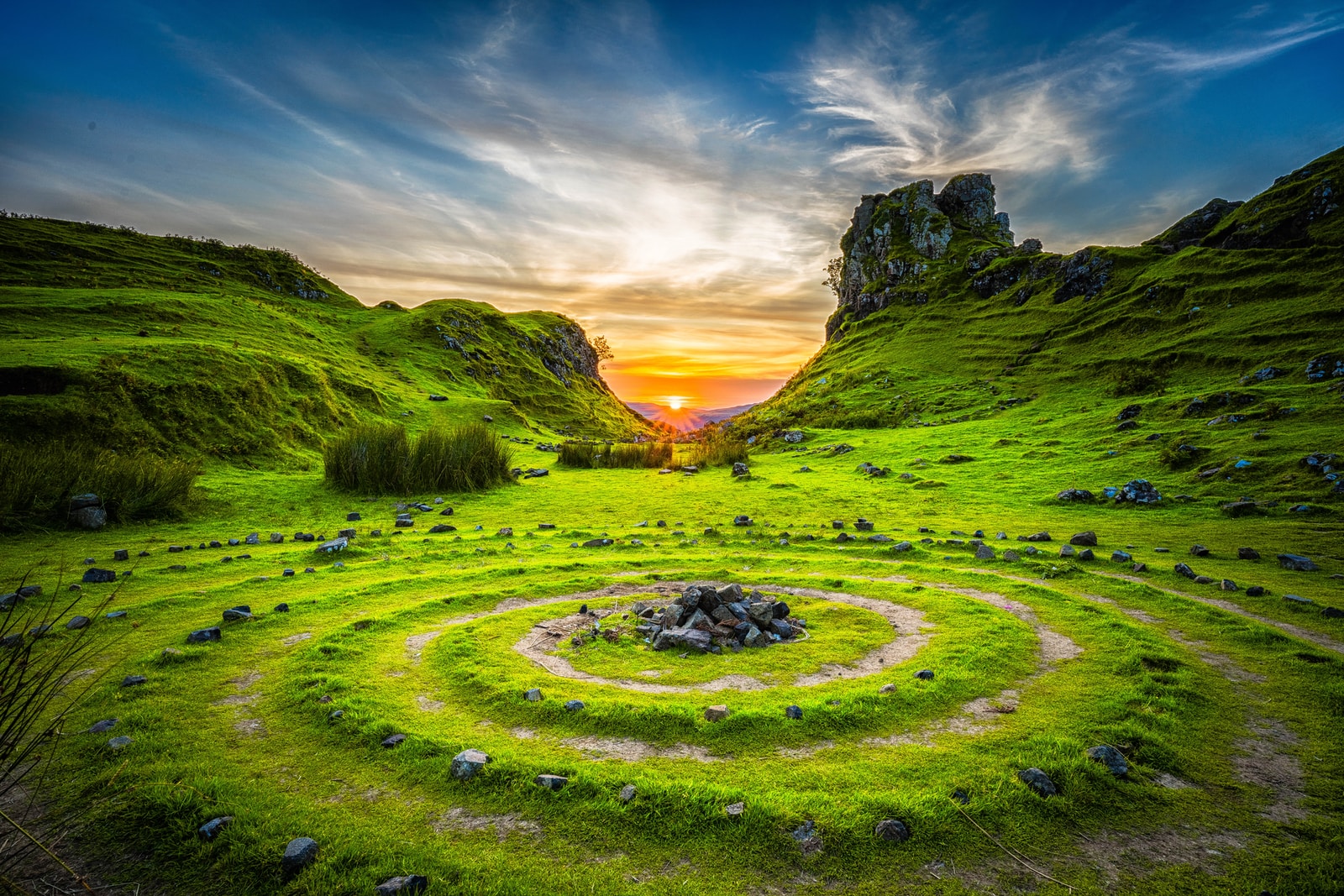In an episode of their series Bullshit, magician-sceptics Penn and Teller make a confession of sorts: they show a photo of themselves at the first Earth Day in 1970. Back then, they say, they genuinely believed there was an environmental crisis that needed to be addressed.
But now? As Penn and Teller say, why is Earth Day a continuing, ever-more-dismal annual dirge-fest of doom and gloom, when the environment has improved remarkably?
Yes, that’s right: improved. I know that single statement is enough to make your average school-striking teenager’s head explode, but it’s a simple fact.
On almost every measure, the environment has improved remarkably in recent decades.
That doesn’t mean that we’re living in the sort of post-industrial Arcadia the Greens fantasize about, nor that environmental issues have all been solved and all is well with the world. Of course there are still problems. Ocean pollution and over-fishing, for example. Regional deforestation in the erstwhile Indies.
But, overall, the Earth has improved. More importantly, the dire predictions of the original Earth Day have all been spectacularly disproved.
The various predictions can be summed up by Pete Gunter, a Texas university professor. By the year 2000, he said, ‘the entire world – with the exception of Western Europe, North America and Australia – will be in famine.’ At the time, 34 per cent of the developing world was undernourished. Now, it’s 13 per cent. Rather than famine, we have lived through a golden era of poverty reduction even though world population has doubled. So what went right?
Should we all get down on our knees and thank the Watermelon left for saving the world with green socialism? Quite the opposite: the hero of the environment is big, bad capitalism.
MIT’s Andrew McAffee looks at this in his book More From Less. We’re learning to tread more lightly on the planet, he argues: instead of abandoning economic growth (as was advocated on 1970 Earth Day) we have done something more profound: uncoupled economic growth from the use of resources.
This is a little misleading. After all, the fundamental premise of economics is the distribution of scarce resources. Capitalist economies have learned to distribute scarce resources with such efficiency that we are literally making More From Less.
We have achieved what was seen to be impossible by the founding fathers of the environmentalist movement. I was struck by McAffee’s figures, but most are American and I wanted to see how far his argument applies to the UK. Some of the results are below. They’re unusual metrics, not ones you often see quoted. But they tell a very different story: about a world where things are good and getting better.
One success, at least in the developed capitalist economies of the West, is air-pollution. Places like communist China most especially, and recovering-socialist India, still have severe urban pollution. But anyone who remembers the yellow skies above cities like London, New York and even Melbourne in the 1970s should marvel at the clear skies of today. Even Los Angeles, the byword for smog, has seen its volatile organic compound levels in the air plummet from 100 ppb in the 1960s, to 2 ppb today — and that, even as gasoline use tripled.

Air is cleaner today than any time since the pre-industrial age. The worst pollutant, sulphur dioxide, is down by 98 per cent since 1970 Earth Day. The PMs (pollutant ‘particulate matter’) that catch the news (usually NO2, PM2.5 and PM10) now is down 80 per cent – or more […] New cars get more mileage from less fuel. The average new car has become 52 per cent more fuel-efficient than in 1997: from 34 miles per gallon to 51.7 (petrol) and 40.2 to 61.2 mpg (diesel).

It’s the same story when it comes to energy consumption.
UK annual energy use has fallen by 31pc since 2001 and the UK economy has grown by 33 per cent over the same period of time. This is a classic example of decoupling: we’re doing and making more than ever, but using a lot less energy to do so. Total inland consumption of primary energy has fallen from the equivalent of 236 million tonnes of oil equivalent in 2001 to 191 million tonnes in 2018 (minus 19 per cent).

As I’ve reported, forests are also making a comeback, all around the world. The UK has more forest cover today than before the Industrial Revolution. The globe as a whole has greened by 25% in the last decade. Much of this is because the much-demonised “industrial agriculture” is, romantic “Good Life” fantasies to the contrary, the best option to both feed humans and improve the environment.
Farmers getting more from less. Ammonium nitrate is a problem, seeping into rivers via fertilisers used on fields. But farmers, too, deserve a shout-out for reducing the use of fertilisers. This peaked in the 1980s and since then, the total amount of nitrogen put on fields in has fallen by 39 per cent, and the amount of phosphate has fallen by 66 per cent. And yes, crop output has fallen in that time – but only by a small amount (5 per cent) while overall agriculture output is actually up by 5 per cent.
Spectator Australia
Again, this is mostly thanks to, not green socialism, but capitalism. In his book, McAfee talks of the “four horsemen of the optimist”: capitalism, public awareness, responsive government and tech progress.
So, make an Extinction Rebellion protester cry, by telling them that the environment is in good shape, and getting better. All thanks to capitalism.

